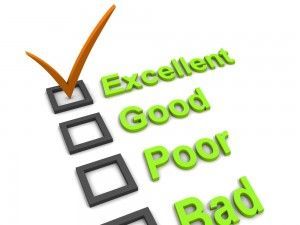When Dealing With Clients, The Details Matter

Have you ever been truly impressed by the standard of service you’ve received? It might be that it seemed that the customer representative really took the time to get to the heart of your issue, or perhaps a lenient returns policy was enacted thanks to the good graces of a store owner in your local area.
The passing business we give to small firms as a customer is one thing, but having that prolonged feeling of worthwhile service and care when interacting as a client is a whole different kettle of fish. You feel this more often when in a service industry, such as being offered a tea before your great haircut, or when a waiter really dotes on your table.
Yet as a corporate manager, applying this level of service to our prolonged clients can be tough. They’re individuals after all, and individuals have different tastes or may need to be convinced of the standards of your service before they give you repeat (and sometimes very lucrative) business.
When dealing with clients, the details matter. Here’s how and why we should consider that:
Introductions & Onboarding
How you receive a client into your firm can be essential. It’s important not to assume they know the ins and outs of your firm. An introduction should also be a sales pitch. Allow them to tour your facilities, or showcase your process. Onboarding , as in easily structuring an account for them with consent, giving them login information, allowing them to track every holding they have with you, all of this can be key. This is why your website as a hub of your business should be invested in, because it will allow convenience within our interconnected world.
Support, Questions & Intrigue
It’s incredibly important to make sure that the support capabilities you have will adequately field client questions. This means training your staff in the frequently asked questions they’re likely to get, while also giving them the autonomy necessary to search for solutions and provide a flexible response. Great quality customer service is one of the pillars of any successful company, and making sure your clients receive all the assistance they need will be the deciding factor on the reputation of your company. However, luckily there are more than a few useful tools that will be able to help you in the customer service department. For example, suppose you offer veterinary services. In that case, having a veterinarian answering service take care of your incoming calls can save a lot of time and effort!
It’s also a great idea to inspire intrigue within your clients, by making them aware of how processes could be linked to additional services, without coming across as upselling every single time. The more you can make the use of your services entertaining and interesting to be part of (often emphasized by those in your industry who do this really well), the more likely someone is to stick around.
Logistics & Transport
How your firm manages the logistics of its interaction with clients, and how it transports clients too, can make a massive difference. For instance, corporate transportation can not only provide you with a sleek but dependable experience that reflects well on your firm. Where other firms see a logistical necessity that needs to be invested in as the cost of business, you can use this as another element that helps curate your client list while keeping your principles clearly visible.
With this advice, we hope you can create and sustain clients by focusing on the details.


